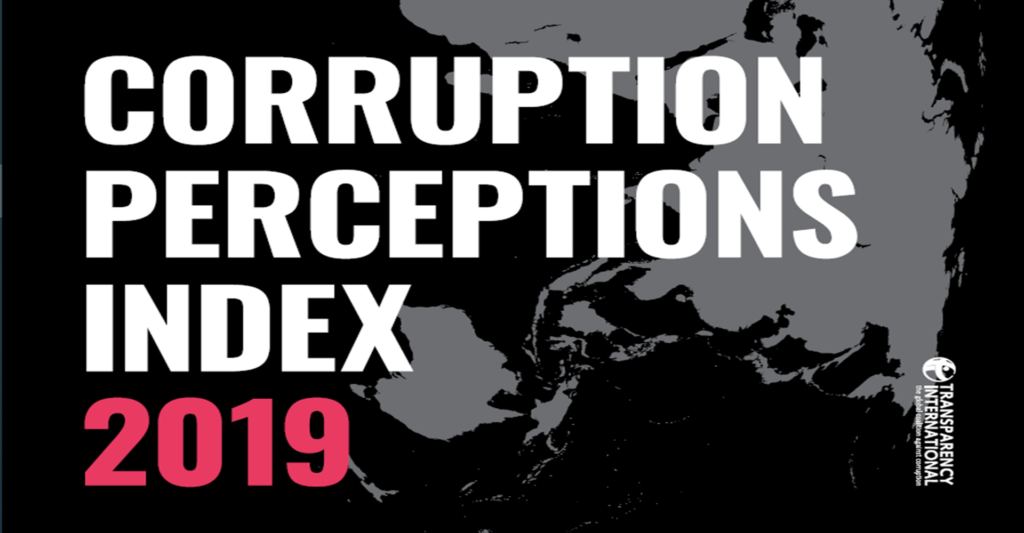The Corruption Perceptions Index (CPI) scores 180 countries and territories by their perceived levels of public sector corruption, according to experts and business people.
The CPI 2019 reveals a staggering number of countries are showing little to no improvement in tackling corruption. Our analysis also suggests that reducing big money in politics and promoting inclusive political decision-making are essential to curb corruption.
EXECUTIVE SUMMARY
The Corruption Perceptions Index 2019 reveals a staggering number of countries are showing little to no improvement in tackling corruption. Our analysis also suggests that reducing big money in politics and promoting inclusive political decision-making are essential to curb corruption. In the last year, anti-corruption movements across the globe gained momentum as millions of people joined together to speak out against corruption in their governments. Protests from Latin America, North Africa and Eastern Europe to the Middle East and Central Asia made headlines as citizens marched in Santiago, Prague, Beirut, and a host of other cities to voice their frustrations in the streets. From fraud that occurs at the highest levels of government to petty bribery that blocks access to basic public services like health care and education, citizens are fed up with corrupt leaders and institutions. This frustration fuels a growing lack of trust in government and further erodes public confidence in political leaders, elected officials and democracy. The current state of corruption speaks to a need for greater political integrity in manyncountries. To have any chance of curbing corruption, governments must strengthen checks and balances, limit the influence of big money in politics and ensure broad input in political decision-making. Public policies and resources should not be
determined by economic power or political influence, but by fair consultation and impartial budget allocation.
Recommendations
To end corruption and restore trust in politics, it is imperative to prevent opportunities for political corruption and to foster the integrity of political systems. Transparency International recommends:
- MANAGE CONFLICTS OF INTEREST
- CONTROL POLITICAL FINANCING
- STRENGTHEN ELECTORAL INTEGRITY
- REGULATE LOBBYING ACTIVITIES
- TACKLE PREFERENTIAL TREATMENT
- EMPOWER CITIZENS
- REINFORCE CHECKS AND BALANCES
GLOBAL HIGHLIGHTS
This year’s Corruption Perceptions Index (CPI) shows corruption is more pervasive in countries where big money can flow freely into
electoral campaigns and where governments listen only to the voices of wealthy or well-connected individuals.
HIGHEST SCORING REGION WESTERN EUROPE & EUROPEAN UNION 66/100
LOWEST SCORING REGION SUB-SAHARAN AFRICA 32/100
Governments must urgently address the
corrupting role of big money in political
party financing and the undue influence
it exerts on our political systems.
Delia Ferreira Rubio
Chair
Transparency International
To have any chance of ending corruption
and improving peoples’ lives, we must tackle
the relationship between politics and big
money. All citizens must be represented
in decision-making.
Patricia Moreira
Managing Director
Transparency International
transparency.org / balkantimes.press
